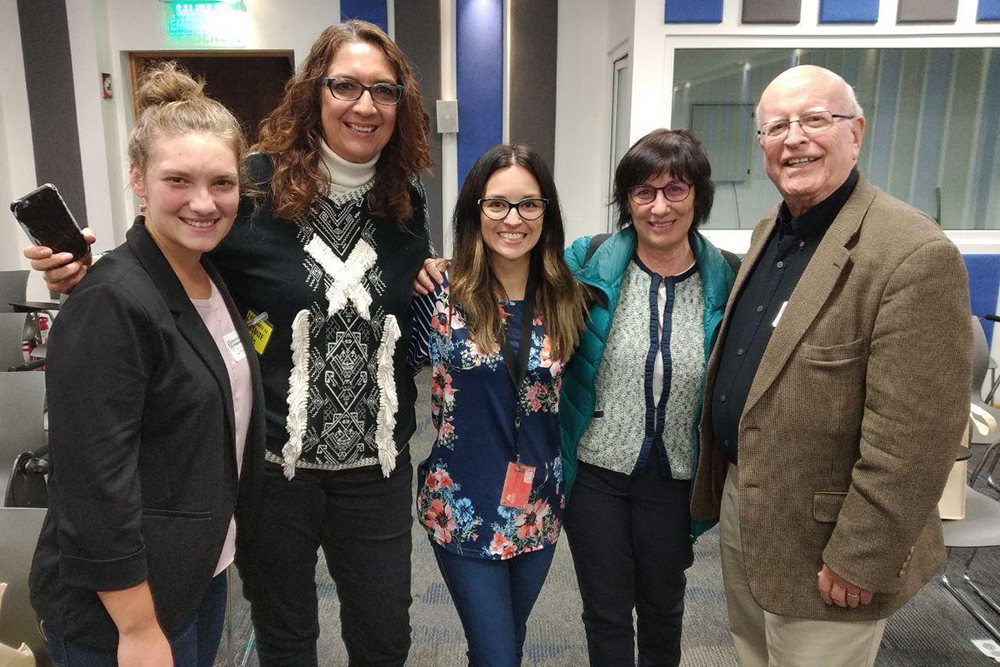Representatives from Eastern Mennonite University’s Center for Justice and Peacebuilding (CJP) traveled to Mexico City in early November for a conference on the intersection of gender and peacebuilding. This was the third year of the “Construcción de Paz con Perspectiva de Género” conference at the University Iberoamericana, a Jesuit-affiliated institution.
It was the second year that CJP has co-sponsored the event.
“It was nice to see the wide range of people working in peacebuilding,” said Vernon Jantzi, professor emeritus of sociology and social work and former executive director of CJP. “I find it really encouraging that peacebuilders attended representing a wide range of work, from the grassroots to the national level.”
The three-day event featured 11 panels with 54 panelists and moderators discussing a range of topics including peacebuilding, trauma, restorative justice, transitional justice to women and security, cartels, masculinity, and peace education.
CJP representatives each contributed to a panel on trauma, migration and education for peace. Alena Yoder, program development associate, was the moderator, with Jayne Docherty, CJP executive director, presenting virtually on grassroots peacebuilding and Jantzi presenting his collaborative research with STAR trainer Elaine Zook Barge MA ‘03 on trauma and migration. The panel also included Lorena Rodriguez Álvarez from Peace and Sport International and Yanela Elizalde from CISV Mexico.
Among the CJP alumni in attendance was attorney Katia Ornelas MA ‘13, who will be co-teaching a Summer Peacebuilding Institute class next year.
Yoder said that there were significantly more attendees than in previous years, with peacebuilders coming from Mexico, Spain, the U.S., Colombia, El Salvador and Guatemala. Some participants from universities joined via live stream.
“The panels reflected a real wealth of knowledge and experience,” Yoder said. “So many people expressed gratitude that we were able to spend valuable time together discussing the influence and impact of women in the peacebuilding field and movements.”
Jantzi said he was gratified to hear many of the attendees recognize and appreciate CJP’s contributions to conflict transformation and restorative justice.
“CJP has long-standing relationships in Mexico, Central America, and South America,” Docherty noted. Much of the CJP curriculum was born from the hands-on education that American restorative justice practitioners received from community leaders in those regions.
“This was an opportunity to celebrate and acknowledge the great work that they continue to do. It is extremely important that we continue to learn from those who are working in the field,” Docherty said.
